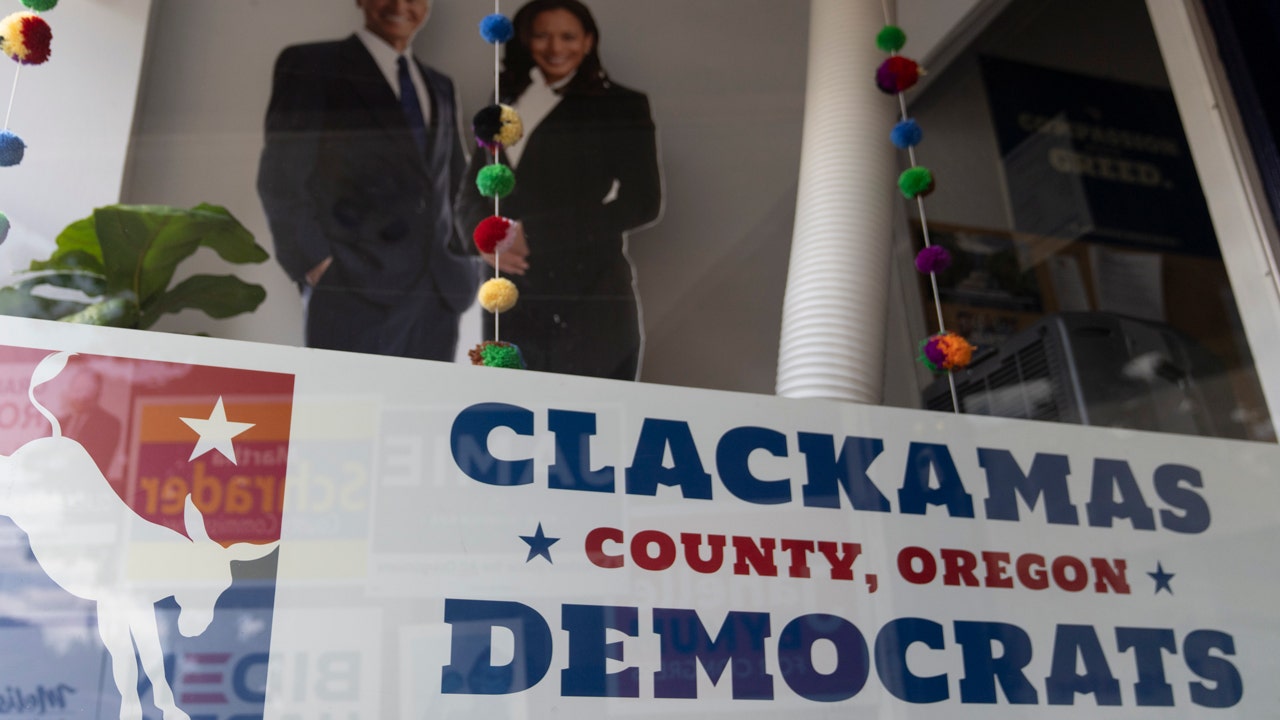CNN
—
This year, voting will be far easier for Michigan residents – thanks to new laws that establish early voting, automatically send out absentee ballots to voters who requested them and mandate that every community has least one drop box in which to return those ballots.
But the changes have made running elections in this crucial presidential battleground much harder – leading some to worry about burnout among the state’s more than 1,500 local clerks, who must juggle increasingly complex election responsibilities with other duties, ranging from town record-keeping to licensing pets.
“We just put a Ferrari engine inside a Model T car,” Michael Siegrist, the clerk of Canton Township, said of the sweeping effort to modernize elections in a state that still conducts balloting under a decades-old, hyperlocal system.
The scramble to implement Michigan’s new voting rules also comes in a highly charged climate under which a simple mishap could fuel fresh – and false – conspiracy theories about election fraud.
In the 2020 general election, human error in the Republican stronghold of Antrim County in northern Michigan briefly led to the unofficial results showing Joe Biden ahead when Donald Trump had won the county. Despite assurances from state and local election officials that no foul play was involved, the situation quickly spiraled, with Trump allies attempting to cast doubts about Biden’s victory by making meritless claims that tabulators had switched votes from Trump to Biden.
The state’s highly decentralized system of administering voting means that “Michigan has 1,500 elections every big election day,” said Kyle Whitney, the city clerk of Marquette in the state’s Upper Peninsula. That helps ensure that balloting and vote-counting is secure because it’s impossible, he said, to “do one thing en masse that could influence the election on a large scale.”
“That said, the drawback is that we have 1,500 local clerks running elections, and we are much more likely to have … dumb mistakes because clerks are undertrained or overtired,” Whitney said.
The changes are also playing out at a time of higher turnover in the field – as election officials leave their jobs because they have either reached retirement age or face heavier workloads or can no longer tolerate the threats and abuse directed at them since the 2020 election.
A recent national survey of election officials by the liberal-leaning Brennan Center for Justice found that 1 in 5 said they were unlikely to stay in their posts through the 2026 midterm elections.
The new rules in Michigan flow from a constitutional amendment that state voters approved by a wide margin in 2022 that dramatically expanded access to voting. For the first time, Michigan now requires nine days of early, in-person voting.
The voter-approved amendment also allows Michiganders to sign up to automatically receive absentee ballots for all future elections. Each community must also have at least one secure ballot drop box, and larger communities must have one for every 15,000 people.
Additionally, the new rules give absentee voters until 5 p.m. on the Friday after the election to fix any clerical errors on their ballots. Ballots cast by military and overseas voters, meanwhile, must now be counted if received within six days after the election, as long as they are postmarked by Election Day.
The 2022 voter amendment, known as Prop 2, built on a constitutional amendment approved in 2018 that allowed any Michigander to apply to vote absentee without needing an excuse. The earlier amendment also established that residents could register to vote on Election Day.
The broad changes have led to a significant workload expansion for the mix of appointed and elected city and town clerks who oversee voting in the Wolverine State.
“It’s almost like running three separate elections now,” Lori Miller, the clerk for Livonia in the Detroit suburbs, said of her new responsibilities. Miller was elected to succeed the previous, term-limited clerk and is overseeing her first presidential election. She previously served as the town’s deputy clerk.
Like other Michigan officials, Miller witnessed the drama that engulfed the 2020 election. At one point, Republicans on the board responsible for signing off on that year’s results in Wayne County, which includes Detroit and Livonia, initially refused to certify Biden’s win. They relented several hours later.
But Miller said she felt she owed it to the community where she has lived all her life to take on the role, despite the challenges. “It’s not a job you can learn in 30 days,” she said.
Deborah Pellow, the part-time clerk of rural Tilden Township in the Upper Peninsula, is also overseeing her first presidential election this year. Pellow has had a long public service career, serving as township treasurer and supervisor along with a decadelong stint as a county commissioner, along with other roles.
But, she said, “this is the hardest and most time-consuming of all the positions I have ever held in the last 30-plus years” as she balances the election demands with other responsibilities, which include bookkeeping, communications and grant-writing for this community of a little more than 1,000 people.
Pellow earns $10,800 a year and said she is working double the hours she initially planned to keep up with her duties.
Even longtime clerks say the learning curve has been steep.
Although voters approved the new rules in November 2022, the state Legislature needed to pass legislation to make them law. That was finalized in July 2023, leaving just a few months for the state to roll out the changes – including a suite of new software – before Michigan’s February 27 presidential primary.
Siegrist, the clerk in Canton, said the time crunch was so intense that he learned the new electronic poll books required for early voting just two hours before he had to train poll workers how to use them.
“I exited 2022 feeling like an expert in election administration and process and procedure,” said Siegrist, an elected Democrat who has served as township clerk since 2016.
“Now, I’m a beginner, and what’s hard is we’re all beginners,” he added.
The February primary was like “drinking from the firehose,” according to Adam Wit, the clerk of Harrison Township – a community of some 23,000 people about 25 miles northeast of Detroit. Wit, a Republican, was first elected in 2012.
“There was new information, new policies, new procedures,” he said. “But failure doesn’t work, so clerks just spent the time, whether it was extra hours on the weekend or long days,” to carry out the election.
Officials with Promote the Vote – the coalition of voting and civil rights groups and individuals behind Michigan’s 2018 and 2020 referenda – said state voters delivered a clear mandate that the election system now must deliver on.
“There’s no doubt that all of these pro-voter changes have created a lot of work for clerks,” said Shira Roza, the group’s election protection director. “We are so grateful to them.”
But, she added, “Michiganders have a fundamental right to vote. … That isn’t very meaningful if you don’t have an opportunity to cast a ballot, and voting on Election Day doesn’t work for everyone.”
State officials say they have worked hard to train and support clerks, including with $30 million in one-time grant money to help them implement the new laws. A pilot program last fall gave some clerks the chance to experiment with the new rules and technology ahead of the primary.
Angela Benander, a spokeswoman for Michigan’s Democratic secretary of state, Joycelyn Benson, said the agency is also urging legislators to provide additional funding to help clerks carry out their responsibilities moving forward.
Ann Arbor City Clerk Jacqueline Beaudry, who is president of the Michigan Association of Municipal Clerks, said her group is also advocating that local governments increase salaries and staff to help clerks navigate the changes and compensate them adequately for the additional work.
Benander and the clerks interviewed by CNN said February’s balloting in the presidential primary went smoothly in the end. The next big test for Michigan comes in August, when voters cast primary ballots for congressional, state and local offices.
“We are confident that the clerks who are always so professional and dedicated to their jobs will get it done,” Benander said.
Pellow, the clerk in Tilden, agreed, saying her job is to help people vote “anyway we can,” no matter the trials.
“The people of the state of Michigan voted for this,” she said. “Whether it’s more work or not, we have to live with that. As I tell my workers, ‘We’re going to put a smile on our face and thank people for voting because that’s what we are here to do.’”






























